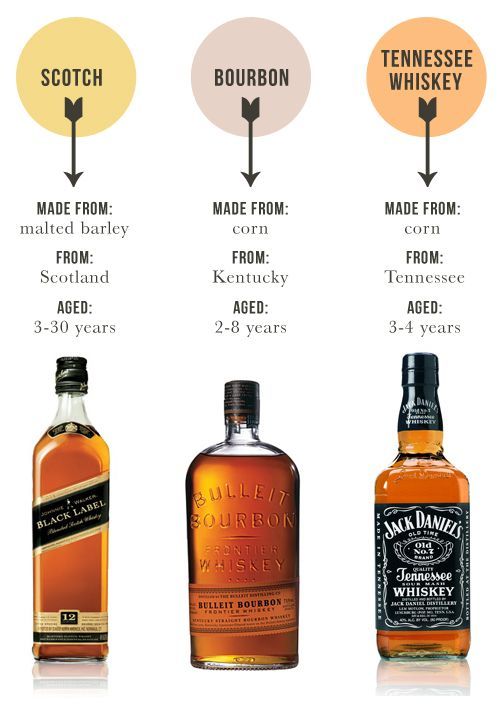Have you ever wondered what makes Scotch different from whiskey? You’re not alone.
Many people find themselves puzzled by these two popular spirits. If you’re someone who enjoys a good drink or is simply curious about the world of spirits, understanding the differences between Scotch and whiskey can enhance your experience. Imagine impressing your friends with your newfound knowledge at your next gathering, or choosing the perfect drink to suit your taste.
By exploring the unique characteristics of each, you’ll discover the subtle nuances that make them special. So, let’s dive in and uncover what sets Scotch apart from whiskey, and why knowing the difference matters to you.

Understanding Whiskey
Whiskey is a beloved spirit that has captured the hearts and palates of many. You might have sipped it neat, on the rocks, or perhaps in a cocktail. But do you really know what makes whiskey, well, whiskey? Understanding whiskey involves diving into its rich history and intricate production process. This journey not only helps you appreciate what’s in your glass but also distinguishes it from its famous cousin, Scotch.
Origins And History
Whiskey’s history is as colorful as the amber liquid itself. It dates back hundreds of years, with roots in Ireland and Scotland. These regions claim the birth of whiskey, each with its unique style and tradition. Imagine the ancient monks distilling grains in the pursuit of medicinal remedies, unknowingly crafting the beginnings of modern whiskey.
Throughout the centuries, whiskey evolved, influenced by cultural shifts and technological advancements. The Irish and Scottish methods spread globally, leading to variations like American bourbon and Canadian whiskey. Each brings its own flair to the whiskey family. Next time you sip, think about the generations of craftsmanship behind that bottle.
Production Process
The magic of whiskey lies in its production. It begins with the fermentation of grains, such as barley, corn, rye, or wheat. These grains are mashed and mixed with water, creating a sugary brew that ferments into alcohol. This is where the journey to whiskey truly starts.
Distillation follows, where the fermented liquid is heated to separate alcohol from impurities. This process is crucial, defining the spirit’s character. Whiskey is then aged in wooden barrels, typically oak, which enhances its flavor and aroma. The aging process is a dance between time and wood, contributing to whiskey’s depth and complexity.
Consider the patience required to craft a bottle of whiskey. It’s a labor of love, waiting for the perfect moment when the spirit is ready to be enjoyed. Next time you pour a glass, remember the artistry involved in every step of its creation.
Exploring Scotch
Scotch holds a unique place in the world of whiskey. It is known for its rich flavors and deep traditions. Exploring Scotch reveals its distinct characteristics. Scotch is not just a drink; it is a journey.
Geographical Roots
Scotch originates from Scotland. Each region in Scotland offers a unique taste. The Highlands, for example, are known for bold flavors. Speyside offers sweeter, more delicate notes. Islay is famous for its smoky, peaty characteristics. Geography plays a vital role in the flavor profile of Scotch.
Unique Characteristics
Scotch must be aged for at least three years. It is often aged in oak casks. This aging process enhances its complexity. The use of malted barley is essential. Scotch can be single malt or blended. Single malt comes from a single distillery. Blended Scotch mixes different types of whiskeys. The careful crafting process makes each bottle unique.
Scotch offers diverse flavors that whiskey lovers cherish. Its history and craftsmanship make it special. Exploring Scotch is an adventure in taste and tradition.
Key Differences
Scotch is a type of whiskey made in Scotland, using malted barley. Whiskey is a broader term, encompassing spirits from various grains and countries. Scotch must age for at least three years, while whiskey aging varies.
When you hear the words “Scotch” and “Whiskey,” you might wonder what sets them apart. Are they just different names for the same drink? The truth is, they have distinct characteristics that make each one unique. Let’s dive into the key differences that define these two popular spirits.Ingredients And Flavor Profile
Scotch and whiskey both start with grains, but the type of grain used can vary. Scotch is typically made from malted barley, giving it a rich, smoky flavor. This smokiness comes from the use of peat in the drying process. On the other hand, whiskey, especially the American variety, often includes corn, rye, or wheat, resulting in a sweeter, fuller taste. Have you ever noticed how a sip of Scotch can transport you to the rolling hills of Scotland with its earthy notes? Meanwhile, a sip of whiskey might remind you of a cozy evening by the fireplace, thanks to its warm, caramel undertones. These flavor profiles are a direct reflection of their ingredients.Aging Process
The aging process is another key difference. Scotch must be aged for at least three years in oak barrels, and many are aged even longer. This aging process contributes to its complex flavors and smooth finish. Whiskey, particularly bourbon, is aged in new charred oak barrels, which imparts a robust, woody flavor. The aging period can vary, and while some whiskies are aged for a similar time as Scotch, others might be aged for shorter periods. Have you ever compared the color of Scotch and whiskey? You might notice that Scotch often has a lighter hue, while whiskey can be a deep amber. This is due to the different aging processes and the types of barrels used. Understanding these differences can enhance your appreciation of each spirit. Next time you sip on a glass, think about the journey it took from grain to glass. Do you prefer the smoky allure of Scotch or the sweet warmth of whiskey? Your palate may hold the answer.Regional Variations
Whiskey, known worldwide, varies greatly by region. Each region brings its own flair and traditions. These differences affect flavor, production, and experience.
Scotch, Irish, American, and Japanese whiskeys showcase unique characteristics. Each type reflects its culture and history.
American Whiskey
American whiskey includes bourbon and rye. Bourbon uses at least 51% corn. This gives it a sweet taste. Rye whiskey is spicier with a rich flavor.
American whiskeys age in new charred oak barrels. This imparts a distinct smoky aroma.
Irish Whiskey
Irish whiskey is smooth and triple-distilled. It uses both malted and unmalted barley. This creates a light and silky texture.
Irish whiskey often ages in both bourbon and sherry casks. This results in a unique blend of flavors.
Japanese Whiskey
Japanese whiskey draws inspiration from Scotch. It’s known for precision and balance. Japanese distillers focus on purity and detail.
The climate in Japan affects maturation. This gives Japanese whiskey a unique taste and aroma.
Cultural Significance
Whiskey and Scotch are more than just spirits; they are cultural icons. Their significance stretches beyond taste and tradition, weaving into the very fabric of societies around the world. Understanding their cultural importance provides a deeper appreciation for these age-old beverages. How do these drinks influence traditions, rituals, and global culture?
Traditions And Rituals
Scotch and whiskey are embedded in various cultural traditions. In Scotland, Scotch is part of the national identity, often featured in celebrations like Burns Night, honoring poet Robert Burns. Imagine sitting by a fire, sharing stories with friends, while enjoying a dram of Scotch. This ritual connects people across generations.
Whiskey holds a special place in Irish and American traditions too. Think of St. Patrick’s Day, when Irish whiskey flows freely, or the American frontier, where whiskey was a staple among pioneers. Rituals around whiskey often symbolize camaraderie and shared experiences. Have you ever noticed how a bottle of whiskey can turn strangers into friends?
Global Influence
The impact of Scotch and whiskey extends globally. Scotch is revered in Japan, influencing the creation of Japanese whiskey, which has gained international acclaim. This exchange of ideas and flavors enriches the global whiskey culture. It’s fascinating how one drink can bridge cultures thousands of miles apart.
Whiskey’s influence is also evident in pop culture. From movies to music, whiskey often symbolizes sophistication and rebellion. Consider the iconic scenes in films where characters ponder life over a glass of whiskey. It’s more than a drink—it’s a statement. How often do you see whiskey portrayed as a symbol of refinement?
These spirits have the power to unite people and cultures. Whether you’re celebrating a Scottish tradition or enjoying whiskey on a movie night, you’re participating in a global conversation. What stories does your favorite whiskey tell?

Choosing The Right Beverage
Deciding between Scotch and Whiskey can be an enjoyable journey. Each has unique flavors and characteristics. Your choice may depend on taste, occasion, or food pairing.
Pairing With Food
Scotch pairs well with hearty dishes. Think roasted meats or strong cheeses. Its smoky flavor enhances bold foods. Whiskey, on the other hand, suits sweeter dishes. Desserts or glazed meats complement its smooth taste.
Personal Preferences
Your palate plays a big role in choosing. Some prefer Scotch for its smoky notes. Others lean towards the sweeter, smoother profile of Whiskey. It’s about what flavors you enjoy most. Trying both can help you decide.

Frequently Asked Questions
What Defines Scotch Versus Whiskey?
Scotch is a type of whiskey made in Scotland. It uses malted barley as its primary grain. Whiskey is a broader category, produced worldwide using various grains. The production methods, aging processes, and regional differences distinguish Scotch from other whiskeys.
Is Scotch Always Made In Scotland?
Yes, Scotch must be produced in Scotland to be called Scotch. It follows strict regulations governing its ingredients, production, and aging. These rules ensure its quality and authenticity. Whiskeys produced outside Scotland cannot be labeled as Scotch.
How Does Aging Affect Scotch And Whiskey?
Aging impacts flavor, smoothness, and complexity of both Scotch and Whiskey. Longer aging typically results in richer flavors. Scotch often requires a minimum of three years aging in oak barrels. Whiskey aging varies by type and region, affecting its taste profile.
Are Scotch And Whiskey Made From Different Grains?
Scotch primarily uses malted barley, while whiskey can be made from various grains. These include corn, rye, and wheat. The choice of grain affects the final flavor profile. Different regions may prefer specific grains for their whiskey production.
Conclusion
Scotch and whiskey share similarities but have unique traits. Scotch originates from Scotland, while whiskey is more general. Production methods differ slightly, influencing taste and aroma. Scotch often has a smoky flavor, thanks to peat. Whiskey’s flavor varies based on region and ingredients.
Understanding these differences enhances your tasting experience. Selecting between them depends on personal preference. Whether you enjoy the smokiness of Scotch or the diverse tastes of whiskey, each offers its own charm. Explore, taste, and enjoy. Each sip tells a story.
Enjoy the journey through these rich traditions.

I’m someone who’s always been fascinated by how small differences can lead to big understanding. That’s why I love writing “What’s the difference between…” content; it helps me explore topics from multiple angles and explain them in a clear, practical way. Whether it’s tech, productivity, business, or everyday decisions, I enjoy making complex ideas easier to compare, understand, and act on.










